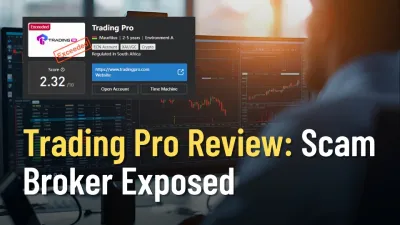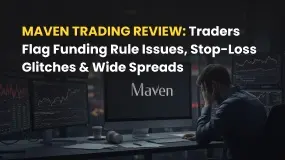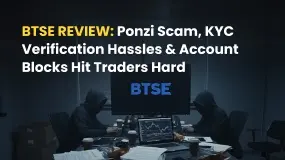简体中文
繁體中文
English
Pусский
日本語
ภาษาไทย
Tiếng Việt
Bahasa Indonesia
Español
हिन्दी
Filippiiniläinen
Français
Deutsch
Português
Türkçe
한국어
العربية
RM71,000 Lost in a Share Scheme That Never Existed
Abstract:A 40-year-old engineer from Malaysia lost RM71,000 after falling for a fake investment scheme advertised on Facebook.

A 40-year-old engineer from Malaysia lost RM71,000 after falling for a fake investment scheme advertised on Facebook.
According to Kemaman police, the incident began on 8 April when the man saw an advertisement on Facebook promoting a share investment opportunity. Interested, he reached out to a woman listed in the ad to learn more.
The woman claimed to represent a Chinese investment company and introduced the man to a mobile application that was supposedly used to manage the investment. Convinced by her claims and the app's appearance, the engineer made an initial small deposit. Soon after, he received a return of RM600. Encouraged by the early payout, he believed the scheme was legitimate.
Over the following month, between 27 May and 26 June, he transferred RM71,000 in total, hoping to earn larger profits. However, the situation took a turn when the expected returns never arrived, and the woman who had introduced the scheme became unreachable. It was at this point that he realised he had been scammed.
Kemaman police chief Superintendent Mohd Razi Rosli confirmed the case and urged the public to be cautious when dealing with investment offers online. He emphasised the importance of ensuring that any company or individual promoting investments is registered with and supervised by the Securities Commission Malaysia. He also advised the public to contact the National Scam Response Centre (NSRC) at 997 to verify any suspicious offers before transferring funds to third-party accounts.
This case is one of many that reflect a worrying rise in scams using social media platforms and mobile apps to lure victims. Scammers often create convincing tools and offer small initial gains to build trust before persuading individuals to invest more.
To help people avoid such traps, tools like WikiFX are becoming increasingly valuable. WikiFX provides detailed information about brokers and financial platforms, including licensing status, regulatory oversight, and user reviews. The platform also issues warnings about unlicensed or suspicious entities, helping users identify red flags early.

By checking a brokers background through WikiFX, investors can make more informed decisions and avoid being drawn into fraudulent schemes. As online scams become more advanced and harder to detect, having access to reliable, independent verification tools is essential for anyone considering a financial investment.

Disclaimer:
The views in this article only represent the author's personal views, and do not constitute investment advice on this platform. This platform does not guarantee the accuracy, completeness and timeliness of the information in the article, and will not be liable for any loss caused by the use of or reliance on the information in the article.
Read more

Trading Pro Review: Scam Broker Exposed
Trading Pro Review reveals scam alerts, fake offices, and withdrawal issues. Stay cautious with this unregulated broker.

FCA Warning List of Firms to Avoid: November 2025 Update
The Financial Conduct Authority (FCA) in the UK has published the FCA Warning List Firms to Avoid:- November 2025, alerting forex traders and investors about unauthorized brokers. These firms are operating without the necessary FCA approval. To safeguard your funds and avoid scams, be sure to check the full warning list below.

Maven Trading Review: Traders Flag Funding Rule Issues, Stop-Loss Glitches & Wide Spreads
Are you facing funding issues with Maven Trading, a UK-based prop trading firm? Do you find Mavin trading rules concerning stop-loss and other aspects strange and loss-making? Does the funding program access come with higher spreads? Does the trading data offered on the Maven Trading login differ from what’s available on the popular TradingView platform? These are some specific issues concerning traders at Maven Trading. Upset by these untoward financial incidents, some traders shared complaints while sharing the Maven Trading Review. We have shared some of their complaints in this article. Take a look.

BTSE Review: Ponzi Scam, KYC Verification Hassles & Account Blocks Hit Traders Hard
Have you lost your capital with BTSE’s Ponzi scam? Did the forex broker onboard you by promising no KYC verification on both deposits and withdrawals, only to be proven wrong in real time? Have you been facing account blocks by the Virgin Islands-based forex broker? These complaints have become usual with traders at BTSE Exchange. In this BTSE review article, we have shared some of these complaints for you to look at. Read on!
WikiFX Broker
Latest News
Forex Expert Recruitment Event – Sharing Insights, Building Rewards
Admirals Cancels UAE License as Part of Global Restructuring
Moomoo Singapore Opens Investor Boutiques to Strengthen Community
OmegaPro Review: Traders Flood Comment Sections with Withdrawal Denials & Scam Complaints
An Unbiased Review of INZO Broker for Indian Traders: What You Must Know
BotBro’s “30% Return” Scheme Raises New Red Flags Amid Ongoing Fraud Allegations
The 5%ers Review: Is it a Scam or Legit? Find Out from These Trader Comments
WikiEXPO Dubai 2025 Concludes Successfully — Shaping a Transparent, Innovative Future
2 Malaysians Arrested in $1 Million Gold Scam Impersonating Singapore Officials
Is FXPesa Regulated? Real User Reviews & Regulation Check
Currency Calculator



